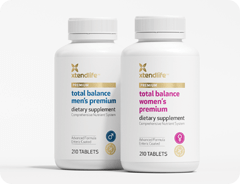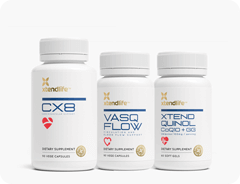“We pop 100 billion pills of this ‘just-in-case’ drug every year, and 37% of them are taken by healthy people as part of their daily health regime.” What is the scientific evidence for the benefits claimed? many studies (ref. 3) have appeared to question the apparent safety and benefits of low dose of daily aspirin. In fact, earlier this year, the concerns raised by these study results have led to a remarkable about turn by the FDA.
Aspirin Rules OK – Or Does it?
Are you amongst the millions globally on a daily low dose of this “ultimate lifestyle drug”? (ref. 1)
If so, you likely agree with Conventional medical proponents who argue that a low dose of daily aspirin (LDA) is inexpensive, easily available, and an effective way to help thin the blood, prevent blood clotting, and so lower the risk of a heart attack or stroke. One publication claims (ref. 1) “We pop 100 billion pills of this ‘just-in-case’ drug every year, and 37% of them are taken by healthy people as part of their daily health regime.”
But what is the scientific evidence for the benefits claimed? We at Xtendlife have consistently doubted them, as explained by Warren Matthews in his blog as long ago as 2007 (ref. 2)
Since then, many studies (ref. 3) have appeared to question the apparent safety and benefits of LDA. In fact, earlier this year, the concerns raised by these study results have led to a remarkable about turn by the FDA (ref. 4). After decades of promoting aspirin, the FDA now says that if you have not experienced a heart problem, you should not take a daily aspirin—even if you have a family history of heart disease.
The FDA’s website says: “FDA has concluded that the data do not support the use of aspirin as a preventive medication by people who have not had a heart attack, stroke or cardiovascular problems, a use that is called 'primary prevention.' In such people, the benefit has not been established, but risks — such as dangerous bleeding into the brain or stomach — are still present."
The Evidence Against
The weakness of the evidence was first comprehensively presented nearly 10 years ago by Dr. John G. F. Cleland, a cardiologist from the UK University of Hull.
Based on a series of meta-analyses from the Antithrombotic Trialists' Collaboration (ref. 5) which is an enormous body of research following more than 100,000 patients at high risk for cardiac events, Dr. Cleland concluded that aspirin therapy was not saving lives. Rather, aspirin seems to change the way vascular events present themselves.
He found that the number of non-fatal events may be reduced, but the number of sudden deaths is increased. That’sbecause what most physicians don't realize is that aspirin can mask a cardiac event in progress.
Dr. Cleland also found that studies touting aspirin's benefits are seriously flawed with biased interpretation of the results. Since Cleland's original study, a deluge of scientific studies have further exposed aspirin's failure, which are summarised in the GreenMedInfo database (ref. 3)
Other Possible Adverse effects
Not only does it appear that aspirin has failed to reduce the prevalence of heart attacks and strokes, but the list of its adverse effects seems to grow greater with further study. These adverse effects include:
Aspirin May Increase Your Risk of Bleeding
Aspirin may interfere with your platelets—the blood cells that allow your blood to clot. One source suggests that long-term low-dose aspirin therapy (LDA) may double your risk for a gastrointestinal bleed (ref. 6). Another source shows how LDA appears to increase your risk for a brain bleed and haemorrhage, especially if you are older (ref. 7)
Aspirin May Destroy the Lining of Your Gastrointestinal Tract
Regular aspirin may destroy the lining of your gastrointestinal tract. This potentially increases the risk of duodenal ulcers, H. Pylori infection, Crohn's disease, diverticular disease, inflammatory bowel disease (IBD), and intestinal perforations.
For example, a Japanese study found a higher incidence of bleeding at the duodenal ulcer sites of patients taking LDA therapy, versus those not taking LDA (ref. 8). Japanese researchers also found that aspirin had caused "small bowel injuries" to 80% of study participants after only two weeks of aspirin therapy (ref. 9). An Australian study also showed that aspirin causes gastroduodenal damage even at the low doses (80mg) used for cardiovascular protection (ref. 10)
Other studies, too numerous to list here, also suggest how aspirin may deplete you of important nutrients, including vitamin C, vitamin E, folic acid, iron, potassium, sodium, and zinc. They also indicate how an increase in the risk of kidney failure, macular degeneration and erectile dysfunction may increase with LDA.
The general consensus on LDA by Medical Authorities like Andrew T Chan and Nancy R Cook of Harvard Medical School, Boston, and UK’s National Health Service is: "Given that the potential risks could outweigh any benefits, it is not advised that healthy people with no risk for cardiovascular disease take aspirin to prevent possible cardiovascular events such as heart attack and stroke. The evidence for taking aspirin purely to prevent cancer or to treat it is even less substantial than for blood thinning. We cannot be sure that the potential benefits are not outweighed by the known risks" (ref. 11).
On the other hand, according to Robert Temple, M.D., deputy director for clinical science at the FDA: “For people who have experienced a heart attack, stroke or who have a disease of the blood vessels in the heart, a daily low dose of aspirin may help prevent a re-occurrence. It also can cause unwanted side effects."
Given this Information, What Can You Do If You Take a Daily Low Dose of Aspirin?
First and foremost, you should consult with your medical practitioner to establish IF you really need to be taking aspirin. If they have not heard of the FDA decision, please refer them to the information here. Together you need to establish why you were advised to take low dose aspirin to begin with, and if there is really any justification for continuing to do so.
Dependent on the reason, you can decide what to do. Here are some tips to help boost the health of your cardio-vascular system:
Tips to Boost Your Cardio-Vascular Health
- Eat healthily! Minimise processed and GMO foods, and maximise fresh fruits, veggies, healthy fats, organic meats and fish, and fermented foods (fermented foods may help to improve microbial diversity in your gut and assist your body’s healthy management of inflammation)
- Limit refined sugar, especially processed fructose and artificial sweeteners.
- Drink enough pure water to prevent thirst. By the time you are thirsty, you may already be dehydrated
- Exercise regularly to help optimise your insulin and leptin levels.
- Consider Earthing! Earthing occurs when you ‘ground’ your body to the earth by walking barefoot on bare natural surfaces such as soil, grass, sand etc This transfers free electrons from the earth into your body through your feet. Although this may seem a bit weird, there is good scientific evidence to support how this energy transferral has health benefits. A good book reviewing these benefits is: “ Earthing: The most important health discovery ever?” I know that I certainly feel better after walking bare footed on the beach... and it’s free!
- Limit smoking and alcohol
- Consider our powerful cardio-vascular health supporting supplements, CX8
Heart Health Support and Omega 3 / DHA Fish Oil (ref. 12)
Also be aware that stopping your daily aspirin needs to be done gradually with medical supervision. There can be a rebound effect which may trigger a cardio event. But if you can reduce gradually and implement the tips above, your chances of maximising your cardio-vascular and overall health are increased.
References:
1. The ‘What Doctor’s Don’t Tell You’ article on “Death by Aspirin” can be seen at http://www.wddty.com/aspirin-it-kills-20-000-americans-every-year.html
2. Warren’s views on the potential risks of a daily aspirin dose can be seen at: http://blog.xtend-life.com/warren_matthews_blog/2007/11/6/aspirin-not-as-benign-as-you-think.html
3. For more information in the GreenMedInfo database, which lists more than 60 articles about aspirin's toxic effects, see http://www.greenmedinfo.com/toxic-ingredient/aspirin
4. For the FDA’s new position on aspirin see FDA http://www.fda.gov/ForConsumers/ConsumerUpdates/ucm390539.htm
5. Information on Dr Cleland’s meta-analyses from the Antithrombotic Trialists' Collaboration can be seen at: http://www.ncbi.nlm.nih.gov/pubmed/11786451
6. This study suggests that long-term low-dose aspirin therapy may double the risk for a gastrointestinal bleed http://www.ncbi.nlm.nih.gov/pubmed/19887685
7. Aspirin appears to increase the risk for a brain bleed and haemorrhage., especially if you are older, as seen in this study http://www.ncbi.nlm.nih.gov/pubmed/18849791
8. This Japanese study found a higher incidence of bleeding at the duodenal ulcer sites of patients taking low-dose aspirin (LDA) therapy http://www.ncbi.nlm.nih.gov/pubmed/19936921
9. Japanese researchers also found that aspirin had caused "small bowel injuries" to 80% of study participants after only two weeks of aspirin therapy http://www.ncbi.nlm.nih.gov/pubmed/19246922
10. This Australian study suggests that aspirin causes gastroduodenal damage even at the low doses used for cardiovascular protection (80mg) http://www.ncbi.nlm.nih.gov/pubmed/19788350
11. For more on the view of LDA by Medical Authorities like the FDA and UK’s National Health Scheme, see: http://www.medicalnewstoday.com/articles/243265.php
12. To discover more about our cardio vascular support supplements, refer to /products/cardio-support and http://www.xtend-life.com/supplements/omega-3/omega-3-dha-fish-oil


 Supplements
Supplements Bundles
Bundles









